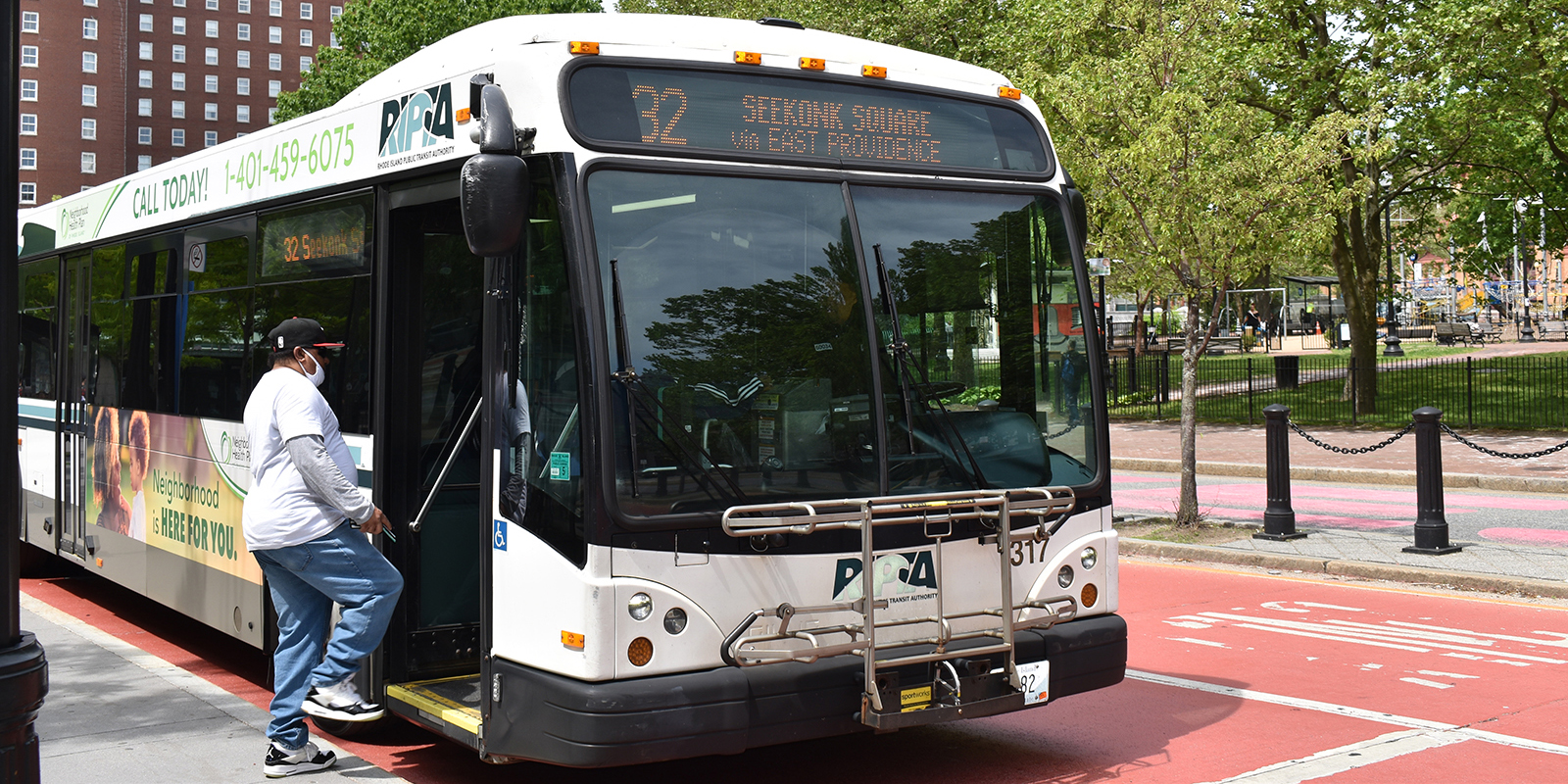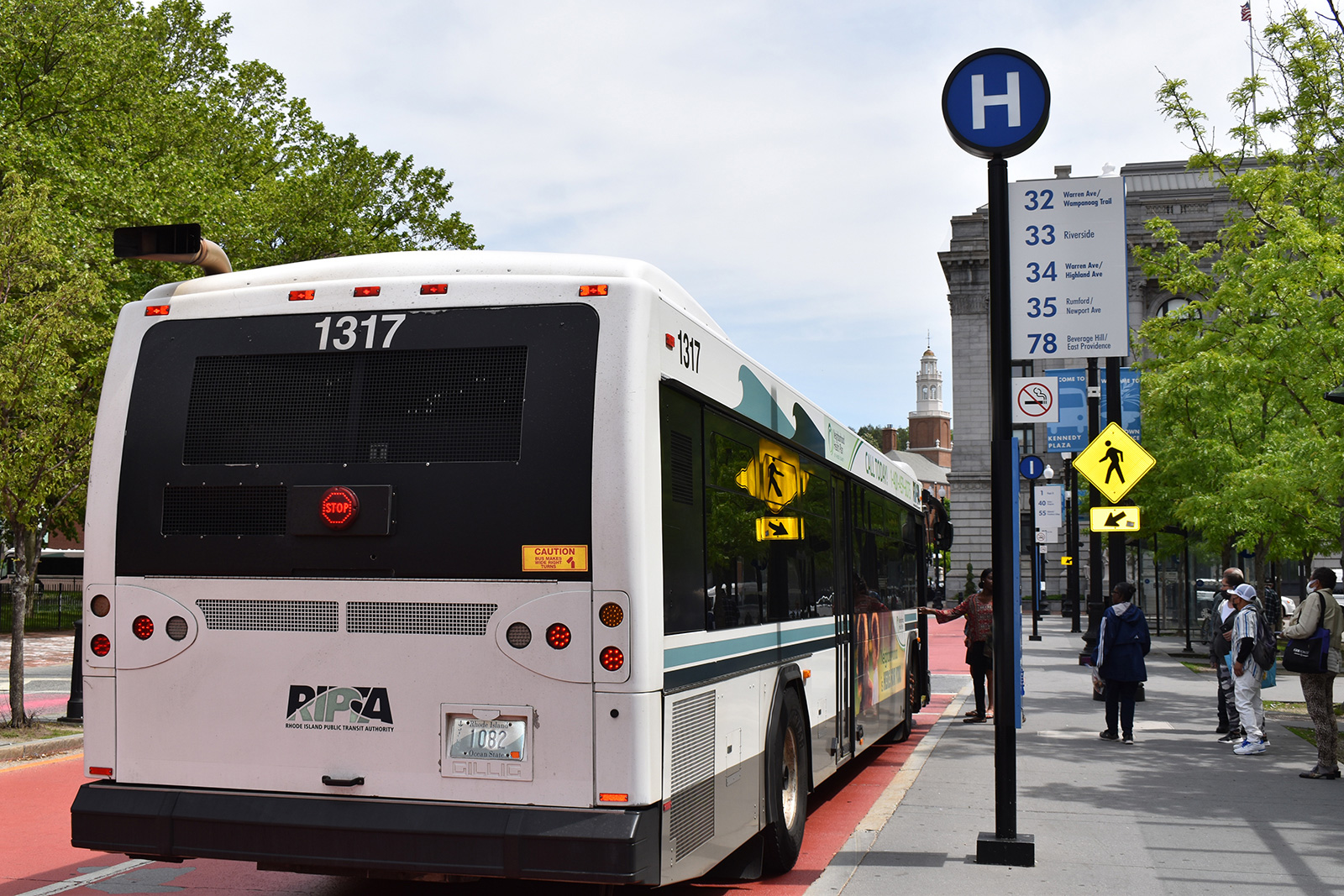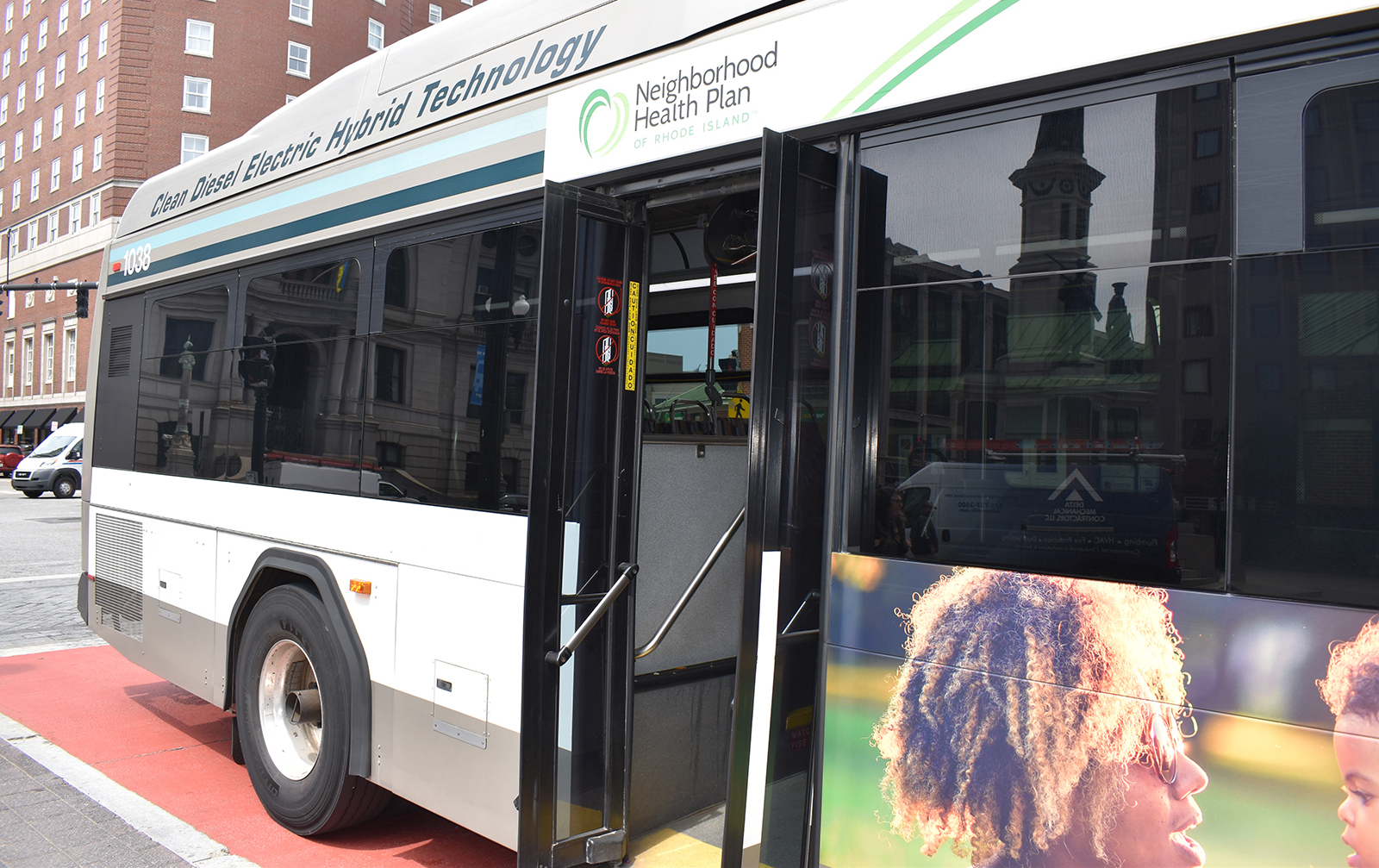Rally Seeks Equity in R.I.’s Transit System
February 14, 2022
PROVIDENCE — Activists rallied across the street from the Statehouse on Friday to celebrate Rhode Island’s first Transit Equity Day. Originally scheduled for Feb. 4 but postponed to honor the birthday of civil rights icon Rosa Parks, advocates gathered to highlight the interrelation between public transit, civil rights and climate change. The event was organized by the Labor Network for Sustainability.
“We want to raise the voices of those who depend on public transit, whose social, economic and political futures are dependent on a good transit system,” Rochelle Lee, an organizer with RI Transit Riders, said during the Feb. 11 event.
The rally’s organizers said they were taking aim at the inequities embedded in transportation investment. The vast majority of government investment in Rhode Island transportation goes toward maintaining, improving or expanding roads and highways, often at the expense of projects such as expanding public transit or adding bicycle lanes.
Fifty-three percent of Rhode Island Public Transit Authority (RIPTA) riders are people of color; 81 percent lack dedicated access to a car; and 39 percent live in households with annual incomes less than $10,000, according to RIPTA. They also overwhelmingly live in the urban core: 53 percent live in Providence and another 10 percent live in Pawtucket.
“We understand that access to opportunity through equitable transportation is key to reducing the disparities that exist for Rhode Island’s minority and low-income populations,” RIPTA chief executive officer Scott Avedisian wrote in a prepared statement. “RIPTA is committed to identifying where those gaps exist in our transportation network and addressing them with the resources and technology we have.”
In September 2020, the agency launched its Wave smart-fare system, transferring ticket purchases to a reloadable card or an app. The agency also made changes to its monthly pass system, letting riders earn free rides once they have paid the equivalent price in rides of a monthly pass.
But proposed changes by RIPTA and the Rhode Island Department of Transportation that would break up the Kennedy Plaza bus hub into multi-hubs spread around downtown has proven controversial with riders. Critics say it will make bus use more difficult for all riders, but especially the elderly or riders with disabilities.
Just last week, RIPTA announced its first public comment meetings on the multi-hub plan, something transit activists have asked of state transportation officials for several years. Transportation officials have indicated, in light of the proposed changes to Kennedy Plaza, focus may change to a new transit center on Dorrance Street.
Sen. Meghan Kallman, D-Pawtucket, has sponsored a bill (S2015) that would make RIPTA free to all riders, the second year in a row such legislation has been introduced. Boston Mayor Michelle Wu recently announced her administration had come to a similar agreement with the Massachusetts Bay Transportation Authority to make three bus routes fare-free for two years.
Advocates stress that more money for public transit infrastructure means reduced greenhouse gas emissions.
“We need to be able to move people around the state, get them access to health care, jobs, education, other vital services without the pressure to own a vehicle … and just keeps polluting our roadways more,” said Hank Webster, Rhode Island director of the Acadia Center.
Vehicle emissions account for 36 percent of all climate emissions in Rhode Island, and state lawmakers are still hashing out a plan to reduce them. Legislators had been working on the Transportation & Climate Initiative, a regional cap-and-trade program that would have reduced emissions while raising money for cleaner transportation projects, but Massachusetts and Connecticut pulled out of the program, which requires at least three jurisdictions to operate.
RIPTA’s first public comment meeting is scheduled for Feb. 24 at 6 p.m. on Zoom. Other public comment sessions are scheduled for March 8 at noon and 6 p.m., also on Zoom. The agency currently has no in-person meeting scheduled for public comment.



